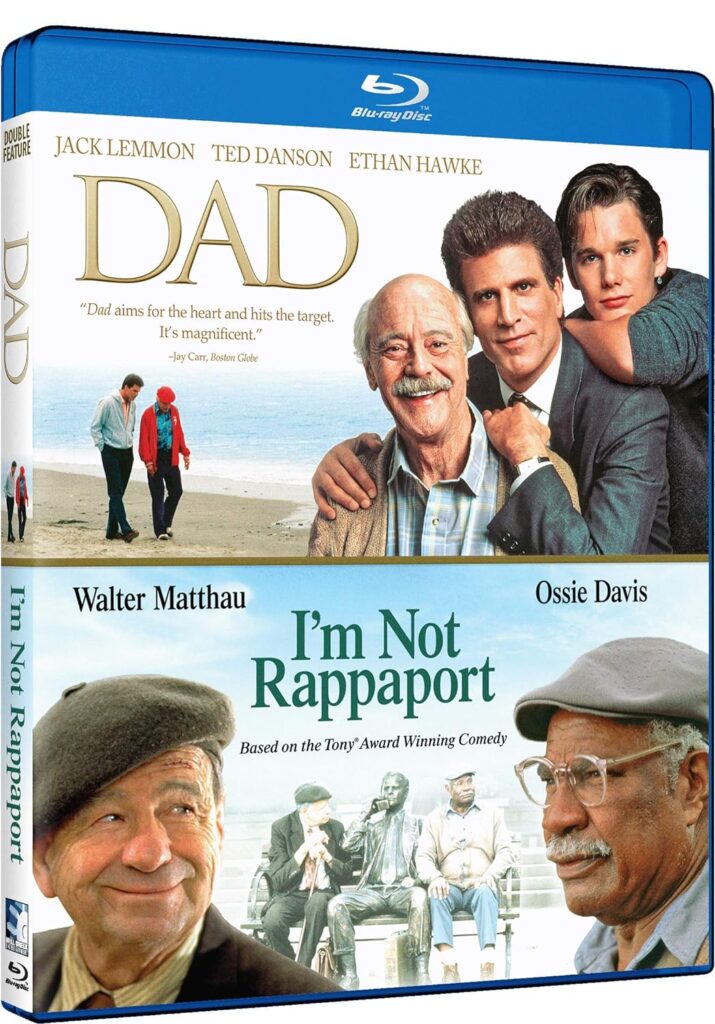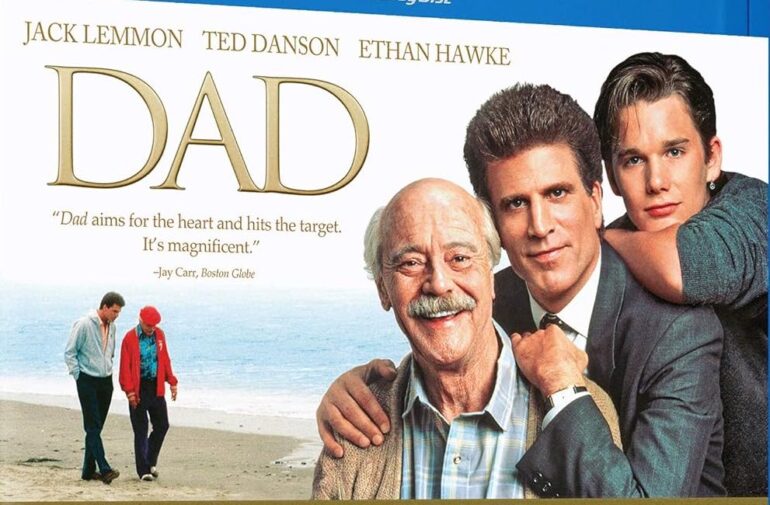Verdict
Summary
Mill Creek pairs these two Universal titles together likely because it puts the great team of Lemmon / Matthau together again one last time, but there are no special features. The transfers are adequate, and while the films themselves aren’t especially noteworthy, they still offer good performances from the leads and are worth watching once, each.
I’m Not Rappaport Plot:
Two old codgers navigate loneliness, purpose, and maneuverability in and around Central Park.
Review:
In their 80s, Nat (Walter Matthau) and Midge (Ossie Davis) are two old codgers who should have nothing in common but their age, but despite their differences they seem to connect and relate in terms of their life experience and where they belong in the world. They meet for the firs time while sitting and arguing on a Central Park bench where it becomes clear that Nat is a bit of a con man and an interloper in other people’s lives, giving his all to make himself relevant in any way he can. As a former social justice warrior, he is still great at causing a lot of trouble wherever he goes, but at his age and current state of frailty he has difficulties talking his way out of bad situations, which he seems great at getting himself into, including mucking up Midge’s life. Midge, a superintendent of a building, is going blind and is being forced to take a paltry severance package to leave his position, but Nat gets involved and makes everything very complicated by overinflating Midge’s position and demanding more. Meanwhile, there’s a drug dealer and enforcers operating all around Central Park, and these two old interlopers get in way over their heads when they butt heads with a drug dealer (played by Craig T. Nelson) who is threatening to kill a local artist (played by Martha Plimpton) for not paying up for her stash. Nat and Midge get into one complicated situation after another, while waxing philosophical on aging, relevancy, and life itself.
A lackadaisical and overlong (at 136 minutes) chatterfest based on a play, I’m Not Rappaport is appealing thanks to two great roles for two great actors, but the movie lacks a plot and a focus. It just goes on and on and takes forever to get to its landing zone, and there’s a prologue in the movie that easily could’ve been deleted, shortening at least 10 minutes from the structure. The movie has a jazzy pace, going where the wind tune and vibe takes it, and while it certainly can’t shake its stagey qualities, it’s still a worthy film with some nice moments for these two fantastic performers. From director Herb Gardner, who adapted his own play for the screen.
Dad (1989) Plot:
After his mother has a serious health episode, a stockbroker comes home to take care of his dad, which proves to be all consuming.
Review:
Jake (Jack Lemmon) and Bette (Olympia Dukakis) are quite a pair: Bette completely dominates Jake in their lives – she dictates everything they do, right down to buttering his toast and dressing him in pajamas at bedtime. When she has a heart attack, Jake is adrift without a rudder, and their son, a wealthy stockbroker named John (Ted Danson) flies home after several years of not visiting. He’s shocked to find that his dad has gotten so old and feeble, and his sister (played by Kathy Baker) suggests that they hire help, but John sees it as a welcome challenge to use this time to bond with his dad, and so he takes a long leave of absence and sets about caretaking his father. In the process, his dad is revitalized and learns to enjoy life again, but it’s all short lived as his dad suddenly has a health episode of his own: cancer. The first surgery is a disaster and has a horrific effect on Jake, who goes into a coma, and after weeks (months?), he comes out of it and must face cancer again, but this time on a united front, as Jake’s family is by his side, making sure he has the best time of his life while there’s still time to enjoy it.
Based on a novel by William Wharton, Dad is slightly elevated by good performances by a team of fantastic actors (Kevin Spacey has a small supporting role early in his career), but it still can’t shake a schmaltzy, made-for TV vibe with its melodrama and out-of-nowhere plot twist involving Jake’s so-called dream world that is classified as a harmless psychosis. It’s a weird twist that seems unnecessary, but the movie goes there, and so it gives the film a lopsided dramatic hurdle to overcome. It’s a well-produced movie by Amblin / Spielberg, and nicely scored by James Horner, but it still doesn’t motivate me to ever want to watch it again. From director Gary David Goldberg, who did a lot of episodic TV like Family Ties before directing this one.
Mill Creek pairs these two Universal titles together likely because it puts the great team of Lemmon / Matthau together again one last time, but there are no special features. The transfers are adequate, and while the films themselves aren’t especially noteworthy, they still offer good performances from the leads and are worth watching once, each.



